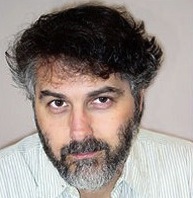Damaged and improperly folded proteins are continually generated in cells. Such proteins are quite toxic. To minimize the impact of misfolded proteins, cells express an extremely complex regulatory system that can sense these proteins, tag them with a marker, and finally eliminate them by breaking them down into amino acids. This pathway is known as protein quality control. Several major diseases are marked by dysfunction of this system, and compromised protein quality control is a common characteristic of neurodegenerative diseases. The first and most critical line of defense in the removal of defective proteins is the ubiquitin-proteasome pathway, in which ubiquitin is the tag placed on misfolded proteins, and the proteasome carries out the degradation reaction. The Finley lab focuses mainly on the proteasome and on a set of proteins that work hand on hand with the proteasome. One goal is to strengthen the quality control pathway by switching the proteasome into a more active state, resulting in a more efficient degradation of misfolded proteins. To adjust proteasome activity in this way we need a better understanding of the operating principles of this very complex machine. Therefore much of our effort is directed towards a better understanding of the individual components of the proteasome. One current interest is proteins that recognize ubiquitin and thus help to deliver ubiquitinated misfolded proteins to the proteasome. Mutations in one of these, known as UBQLN2, lead to ALS. Our studies are aimed at defining how defective UBQLN2 leads to problems in proteasome function and ultimately the degeneration of motor neurons.

Daniel J. Finley, PhD
Professor of Cell Biology, Harvard Medical School
The Proteasome and Protein Quality Control
